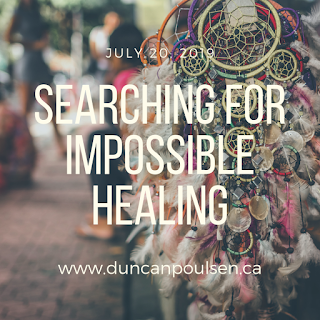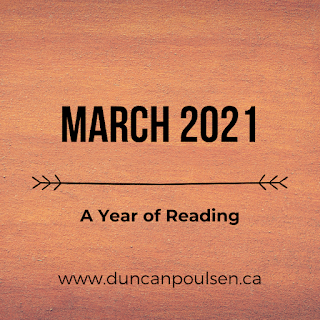Searching for Impossible Healing
Once while chatting with a school teacher, I mentioned that my
mom was Canadian. But I was surprised by this stranger’s brusque remarks. “You
do realize that the only true Canadians are First Nations people.” she asked;
yet somehow it was also a challenge.
I had just met this lady. Who was this school teacher to
correct me? I don’t truly know who my great-grandparents are, which country
they came from or even their true names. But I know one thing. I have lived in
Canada all my life and I have Canadian citizenship. I know I am a Canadian.
Aren’t I?
I caught the implications of the ideas she presented in that
one sentence. If the only “true Canadians” were First Nations people, then we
aren’t Canadians at all. If we live in Canada but aren’t Canadians, we are
invaders. If we’re invaders, we’re wrongdoers and need to be working to make
things right. That final car in the train of thought is what got me. With one
sentence about heritage, I understood she thought we should be working towards
reconciliation with First Nation’s people.
I’m not ignorant. I’ve studied about residential schools. I
know about the trail of tears. I know about the environment and realize how the
decline of bison affected the indigenous peoples, as well as the whole
ecosystem. The irreversible damages weren’t new to me. But I didn’t agree with
her about working for reconciliation either.
There was nothing I could do. It bothered me that indigenous
groups were pushing our generation to make up for past generations’ mistakes.
Our generation had done nothing wrong and no action could make everything right
again. Those were in the past; there was nothing we could do.
But I guess there was something I could do. I wrote a paper
on the topic, encouraging people to let go of the weight of past generation’s
mistakes and move forward. A student from Germany was with us at the time and
read it over. She was noticeably disturbed. She explained that in Germany,
people are extremely careful about sounding prejudiced. She said she feels
personally responsible for what Hitler inspired and forced the Nazis to do. That
didn’t make sense to me. She felt personally responsible for the death of millions
of people? She didn’t do anything wrong; she wasn’t even born during that time.
I couldn’t understand how someone
could feel responsible for something they hadn’t done. But years later, while
studying in Australia, a place with their own history of hurt, a friend showed
me what I hadn’t understood before. We studied and saw how one person’s sin affected
a whole race and how one’s actions can have so many effects. We dug into
identificational repentance and our role as ambassadors of Christ in healing
the hurts of the world. We studied the world’s brokenness in racial conflict,
genocide, refugee crises and more. We studied God’s heart for wholeness and
shalom.
I realized that God
the Creator has a heart for a relationship with each one of us, but he also
seeks wholeness in each one of us. More times than I can count, I saw God
faithfully set me free from hurt, thought patterns and shame and put me on the
road to freedom and wholeness. I realized the vast scope of shalom.
I realized that I
may not have personally taken land, but I am living on stolen land. I am in
possession of stolen goods. I realized that I may not have killed anyone, but I
am living under a government that has committed genocide. I am a supporter of
a genocidal government.
I still believe I
am a Canadian. But I’m not sure if that’s something I’m proud of in this case.
Is it possible to atone for these seemingly irreversible wrongs? I don’t have
any answers. I only have questions. But they need to be asked.
Where do we go
from here?




Comments
Post a Comment